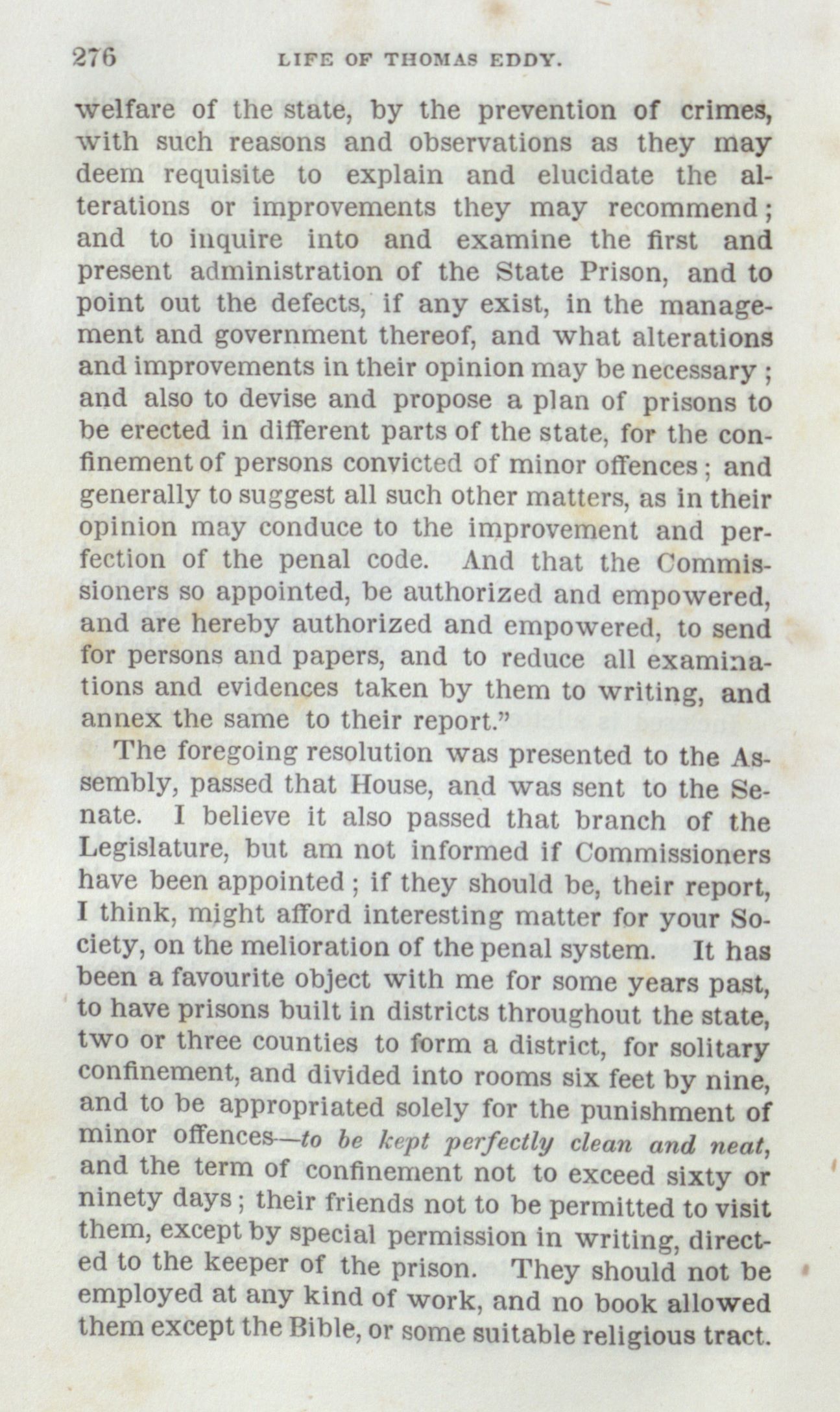welfare of the state, by the prevention of
crimes,
with such reasons and observations as they may
deem
requisite to explain and elucidate the al-
terations or
improvements they may recommend;
and to inquire into and examine
the first and
present administration of the State Prison, and
to
point out the defects, if any exist, in the manage-
ment
and government thereof, and what alterations
and improvements in
their opinion may be necessary;
and also to devise and propose a
plan of prisons to
be erected in different parts of the state,
for the con-
finement of persons convicted of minor offences;
and
generally to suggest all such other matters, as in
their
opinion may conduce to the improvement and
per-
fection of the penal code. And that the Commis-
sioners
so appointed, be authorized and empowered,
and are hereby
authorized and empowered, to send
for persons and papers, and to
reduce all examina-
tions and evidences taken by them to
writing, and
annex the same to their report.
The foregoing resolution was presented to the As-
sembly, passed that
House, and was sent to the Se-
nate. I believe it also passed that
branch of the
Legislature, but am not informed if
Commissioners
have been appointed; if they should be, their
report,
I think, might afford interesting matter for your
So-
ciety, on the melioration of the penal system. It has
been a
favourite object with me for some years past,
to have prisons built
in districts throughout the state,
two or three counties to form a
district, for solitary
confinement, and divided into rooms six feet
by nine,
and to be appropriated solely for the punishment
of
minor offences—to be kept perfectly clean and
neat,
and the term of confinement not to exceed sixty
or
ninety days; their friends not to be permitted to visit
them,
except by special permission in writing, direct-
ed to the keeper of
the prison. They should not be
employed at any kind of work, and no
book allowed
them except the Bible, or some suitable religious
tract.

